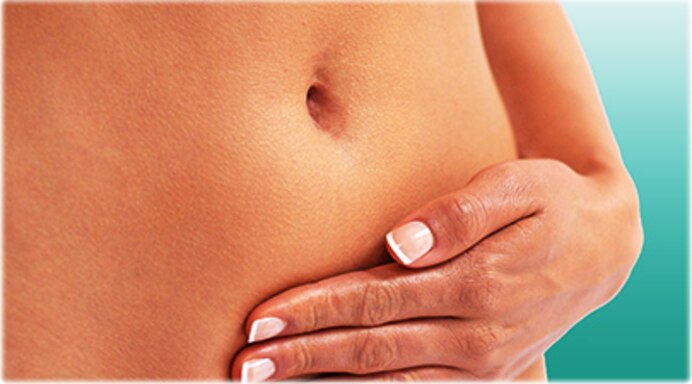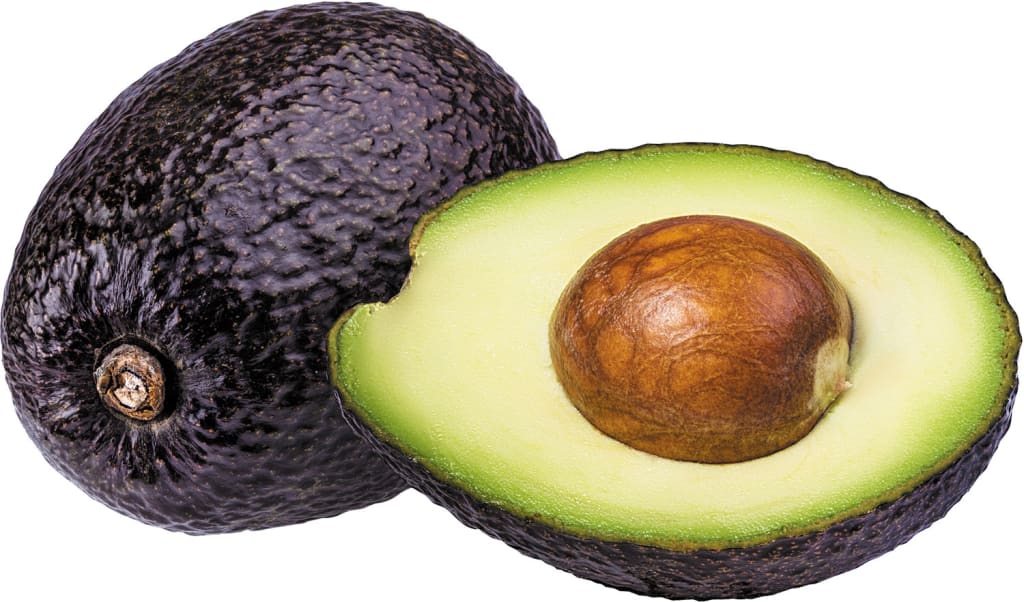
Incidences of insulin resistance, obesity, and other metabolic disorders have reached massive proportions in industrialized nations. The current popular glucose-lowering drug available by prescription is called metformin. This drug comes with potential side effects, some of which are very serious (1).
Berberine is a plant compound that developed a reputation as a natural metformin alternative. This is because it can help the body reduce blood sugar in multiple ways with relatively few side effects.
Here, we’ll examine a number of berberine’s benefits and see where it stacks up in terms of its ability to lower blood sugar, improve metabolism, and perform its other duties in various systems of the body. We dug through mountains of scientific studies so you don’t have to.
Lowers Blood Sugar & Improves Insulin Sensitivity
Berberine lowers blood glucose as much as common drugs used for that purpose. It does this in several different ways.
Supports Insulin Production in the Pancreas
A 2012 study noted berberine’s ability to decrease glucose and insulin in the blood of humans and animals and strengthen insulin sensitivity. (4)
The researchers explained one of the mechanisms behind these benefits: the regulation and repair of pancreas islets. Islets are groups of cells in the pancreas that make hormones. One of the hormones is insulin, which allows your cells to absorb glucose and use it for energy.
“These results indicate berberine may have a two-way regulation in pancreas islets. In typical type 2 diabetes with notable insulin resistance, berberine lowered blood insulin levels through increasing insulin sensitivity. However, in type 1 diabetes or the late stage of type 2 diabetes characterized by poor β-cell function, berberine was able to increase insulin secretion via repairing destructed or exhausted islets, which may be related to its antioxidant and anti-lipid peroxidation properties.”
Activates the “Metabolic Master Switch” Enzyme
One glucose-lowering talent of berberine is the ability to activate the adenosine monophosphate-activated protein kinase (AMPK) signaling pathway. AMPK is an enzyme produced in the brain. It has earned the nickname of “metabolic master switch” because it plays an important role in energy metabolism. Defects of this enzyme’s signaling pathway can result in obesity and other metabolism problems. Berberine helps to activate AMPK. This helps the body regulate the metabolism of glucose and fats. (5)
Stimulates Enzymes that Break Down Glucose
A 2014 study sought to determine whether AMPK activation was the only mechanism by which berberine could lower blood sugar and found that it is not. They did this by chemically blocking AMPK activation. The results showed that even when AMPK was blocked, berberine still lowered blood sugar. So did metformin. The authors concluded that berberine and metformin not only activate AMPK. They also promote glucose metabolism through the stimulation of glycolysis, which is the breakdown of glucose by enzymes in the body. (6)
Reduces Breakdown of Certain Carbs & Starches
Berberine is also able to work against diabetes because it works in the same way as alpha-glucosidase inhibitor and alpha-amylase inhibitor drugs (e.g. miglitol and acarbose). These are medications that prevent the digestion of carbohydrates and reduce the impact of eating carbs on blood sugar (7)(8). Specifically, they inhibit enzymes that break down sugars and starches. Natural forms of these exist in plants and include curcumin and berberine. (9)
They also decrease glucose transportation across the intestinal epithelium layer, (the layer of cells between the intestines and the stomach where food is absorbed into the body).
Prevents the Liver from Creating Too Much Glucose
Berberine has also been found to inhibit gluconeogenesis, or the production of glucose that takes place in the liver. (10)
Supports Metabolism
The same mechanisms that allow berberine to control blood sugar levels and insulin sensitivity also make it good for the overall metabolism of carbs and fats.
If you’ve read this article from the beginning, you know that it inhibits glucose production in the liver and glucose digestion in the belly. It activates the enzyme, AMPK, which regulates fat and sugar metabolism. It also repairs and supports islets, the clusters of cells in the pancreas that produce insulin.
May Promote Weight-Loss
In one study, obese human subjects took 500mg of berberine three times daily for 12 weeks. They lost an average of five pounds (2.3kg). They also lost more cholesterol and triglyceride than they would have through other weight loss methods. (11)
Another study of humans with metabolic syndrome led to greater weight loss in the same amount of time. In three months, their body mass indices (BMI) dropped from an average of 31.5 to 27.4, taking them from obese to overweight status. They took 300mg, three times daily. Insulin resistance likely played a role in the amount of weight lost. (12)
A 6-month study of metformin and weight loss monitored 154 patients who took up to 500mg twice per day. They lost a considerable amount of weight, especially those with high insulin resistance. Untreated participants gained weight. (13)
Berberine has multiple mechanisms that help regulate metabolism and cause weight loss.
AMPK triggers the production of new mitochondria (pictured)
Reduces Inflammation
A 2014 review of studies examined berberine’s anti-inflammatory effects in those with metabolic disorders like diabetes, which is also an inflammation disorder. In the analysis, they noted a large number of antioxidant and anti-inflammatory activities in humans and animals. (14)
Kills Bacteria, Viruses & Fungi
A lot of scientific studies reveal berberine’s ability to kill bacteria, viruses, fungi, and parasites. There are too many to mention here. However, here are some notable ones.
A 2014 study noted its ability to fight candida overgrowth, a fungal infection that begins in the digestive system and can spread to
all body systems. (15)
A 2011 rodent study reduced influenza virus mortality from 90% to 55%. (21)
Researchers in 2005 found that berberine helped certain antibiotics fight the deadly methicillin-resistant staphylococcus aureus (MRSA) bacteria in a synergistic relationship compared to controls. (16)
Quickens Wound Healing
Berberine’s anti-bacterial and anti-inflammatory effects can help wounds heal more quickly.
Promotes Heart Health & Lowers Cholesterol
High blood sugar, triglycerides, and unhealthy cholesterol increase the risk of heart disease. Berberine reduces all three and elevates the level of healthy cholesterol. (17)
In a long-term study published in 2003, berberine significantly improved the survival rate of people who previously suffered from heart failure. (18)
Lowers Fat Build-Up in the Liver
In a 2013 analysis of scientific studies examined berberine’s ability to reduce fat storage in the liver. Researchers confirmed this ability and recommended more studies to determine how berberine accomplishes this. (19)
May Improve Mood
A 2008 study increased levels of serotonin (19%), dopamine (52%), and norepinephrine (29%) in the brains of rats within 15 days using berberine. (20)
Researchers examined existing studies in 2019 and noted numerous ways in which berberine improves moods, especially in patients with mood disorders. (22)
Encourages Good Gut Bacteria Balance
3D Image of Intestinal Bacteria
A 2010 study of adult men of all ages, shapes, and sizes linked excesses of certain types of “bad bacteria” in the gut with type 2 diabetes. (23)
In a 2018 analysis of existing studies, researchers pointed out several connections between metabolic disorders like diabetes and the gut bacteria ecosystem. They blame the current high levels of diabetes on a modern diet rich in carbohydrate-rich and fat-rich processed foods and a lack of fiber. Healthy gut bacteria feed on the fiber and create short-chain fatty acids (SCFA’s) that reduce inflammation. People with diabetes have lower levels of gut bacteria that create SCFA’s. All of these factors, combined with the overuse of antibiotic drugs, lead to more diabetes cases than in previous periods of history. (24)
The same researchers also noted other chemicals produced by healthy gut bacteria that help prevent metabolic disorders and support the immune system and organs in all systems of the body.
According to a Chinese study in 2011, berberine that does not get absorbed and used by the body may suppress “bad” gut bacteria and inhibit their reproduction. Some of these bacteria strains help create the conditions for diabetes. Berberine that does get absorbed may help suppress these strains, too, but the scientists were mainly looking at the berberine that stayed in the digestive system. (25)
The researchers cited a study showing that berberine does not suppress healthy probiotic strains in the lactobacillus and bifidobacterium groups. These groups include most of the healthy strains you will find in probiotic supplements, yogurt, and other probiotic-rich foods. They also pointed out another study of a probiotic milk beverage slowing down a number of diabetic symptoms in rats consuming high amounts of fructose. By suppressing bad bacteria, berberine supports the growth of probiotics.
Reduces the Severity of Acne
A 2012 Iranian study of adolescents with moderate to severe acne lowered their Michaelson’s acne severity scores by an average of 45% in four weeks compared to a placebo. They used 600mg of oral barberry extract daily. (33)
Berberine vs. Metformin: Is Berberine the Natural Substitute?
First of all, let us remind you that this article is not intended to be a substitute for diagnosis and sound medical advice from your doctor. Second of all, below is some great news for berberine.
A 2008 study followed 36 adults, who were newly diagnosed with type 2 diabetes, for three months. Subjects were randomly assigned berberine or metformin. Both showed similar effectiveness at lowering blood sugar. Berberine worked better than metformin for fat metabolism. (26)
In part B of the study, they looked at 48 adults with “poorly controlled” type 2 diabetes. Berberine improved blood sugar and cholesterol levels as well as fat metabolism. The only side effects reported were temporary gastrointestinal symptoms: flatulence gas pains, diarrhea, and constipation. There was no damage to liver or kidney functions. (26)
The medical scientists concluded that berberine “may serve as a new drug candidate in the treatment of type 2 diabetes.” They noted its low cost and relative safety compared to established drugs with similar effects. They also recommended new studies embracing a larger share of the diabetes patient population. (26)
A 2015 analysis of scientific studies published in the Journal of Ethnopharmacology compared the effects of berberine on those with type 2 diabetes. Researchers looked at 27 randomized controlled clinical trials with a total of 2,569 patients participating. These were placebo studies. Some also compared results of berberine to placebos with and without exercise programs and other “lifestyle interventions.” Others compared berberine with oral drugs that lower blood sugar. (27)
The researchers concluded that berberine with lifestyle intervention was more effective at lowering blood glucose compared to lifestyle intervention alone with placebo. Berberine showed additional positive effects on blood sugar when combined with similar pharmaceutical drugs. They concluded that berberine’s ability to lower blood sugar is as effective as conventional treatments. They also recommended berberine for those who can’t afford pharmaceuticals while calling for more studies to settle unanswered questions. (27)
Verdict: Berberine does appear to act as a natural alternative to glucose-lowering drugs like metformin, but remember: Always consult with your healthcare provider before treating any diseases with nutrients. They have the resources to perform proper diagnoses and tests. If you have a complex health condition or multiple illnesses, they are also better equipped to detect these things.
Health Topics





